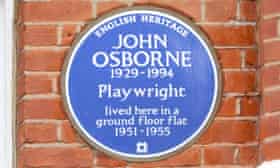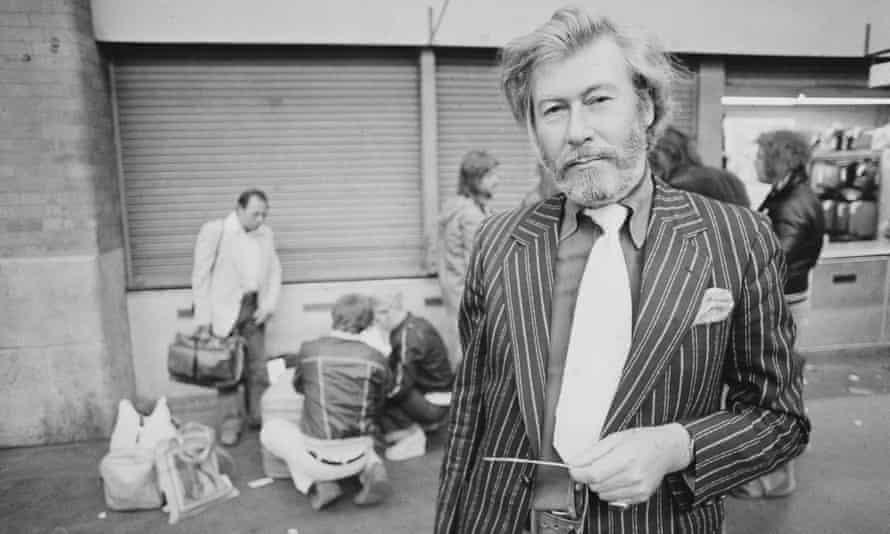British theatre must take inspiration from John Osborne and make itself essential to a mass audience if it is to thrive in a post-Covid world, according to David Hare, who says the artform is in need of a “revolution”.
Osborne is being honoured with a blue plaque from English Heritage, which will be placed at 53 Caithness Road in Hammersmith, west London, where he wrote his seminal play Look Back in Anger, which was first performed at the Royal Court Theatre 65 years ago on Saturday.
Hare, who was heavily influenced by Osborne’s acerbic brand of social realism, said British theatre once again needed to find voices that reached beyond its usual audience, as Osborne did.

“Two plays – Look Back in Anger and [Shelagh Delaney’s] A Taste of Honey – are words that the whole country knew about … I don’t know of a play in the 21st century that people know about in the same way,” he said.
“[Jez Butterworth’s] Jerusalem is probably the most successful play of the 21st century, but I doubt if anyone who isn’t a theatre hobbyist has heard of it.”
In August, Hare’s play Beat the Devil opened at the Bridge Theatre and detailed his experience with Covid-19, during which he lost 8kg in a week before recovering.

Hare says the pandemic has provided British theatre with an opportunity to refocus and the honouring of Osborne – whom he describes as writing in a “hot, warm, passionate voice that was quite un-English” – could not be better timed.
“I think it’s very timely because we are, as it were, inevitably about to reinvent the British theatre,” he said. “It’s very important to remember that all revolutions are created by writers, and John Osborne invented the modern play, and it hasn’t really been superseded.”
Hare said Osborne’s influence was such that established authors such as Muriel Spark and Doris Lessing began writing plays because they could see what impact a play could have. “Do I think that’s happening at the moment? No, it hasn’t happened in the British theatre for a very long time,” he said.
“Certainly, it’s very hard to think of playwrights under 50 who can fill theatres. And the danger is that we become feebler and feebler because we’re talking only to ourselves.”
Osborne’s play – which followed Jimmy Porter as he rants about politics, class and sex giving “the sense of a country stifled by an official, establishment culture” – liberated theatrical language, according to the Guardian’s Michael Billington.
He wrote the play after seeing an advertisement asking for new plays by the team trying to revive the fortunes of the Royal Court in Sloane Square. Osborne’s play stood out, and the unknown young actor would become the figurehead of a move towards a new type of British theatre-writing, and turned him into “a spokesman for the disaffected young”.
Hare said the Royal Court’s then artistic director, George Devine, was not looking to turn the theatre into a place where social realism dominated, but Osborne’s play changed the direction of the institution and British theatre in the 50s and 60s.
“[Devine] didn’t particularly want to create the kind of theatre he created, but he could see that it was where the energy was coming from,” Hare said. “Suddenly, the Royal Court was a visible thing and a hugely influential place, and it’s entirely thanks to John Osborne.”
Hare believes Osborne is out of fashion because in later life he shifted towards a rightwing libertarian world view. “He’s right out of fashion because, unfortunately, we’re going through a period in which artists are judged by their opinions, not by their work,” he said.
But Hare said his influence could still be felt today and opened the doors for more expressive, modern British playwriting.
“Osborne was the gatekeeper; he was the man who made everything possible.”
This content first appear on the guardian
